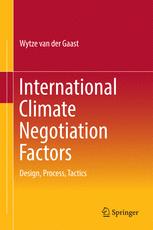

Most ebook files are in PDF format, so you can easily read them using various software such as Foxit Reader or directly on the Google Chrome browser.
Some ebook files are released by publishers in other formats such as .awz, .mobi, .epub, .fb2, etc. You may need to install specific software to read these formats on mobile/PC, such as Calibre.
Please read the tutorial at this link: https://ebookbell.com/faq
We offer FREE conversion to the popular formats you request; however, this may take some time. Therefore, right after payment, please email us, and we will try to provide the service as quickly as possible.
For some exceptional file formats or broken links (if any), please refrain from opening any disputes. Instead, email us first, and we will try to assist within a maximum of 6 hours.
EbookBell Team

4.0
6 reviewsProviding a detailed examination of climate negotiations records since the 1990s, this book shows that, in addition to agreeing on climate policy frameworks, the negotiations process is of crucial importance to success. Shedding light on the dynamics of international climate policymaking, its respective chapters explore key milestones such as the Kyoto Protocol, Marrakech Accords, Cancun Agreement and Doha Framework.
The book identifies a minimum of three conditions that need to be fulfilled for successful climate negotiations: the negotiations need to reflect the fact that climate change calls for global solutions; the negotiation process must be flexible, including multiple trajectories and several small steps; and decisive tactical maneuvers need to be made, as much can depend on, for example, personalities and the negotiating atmosphere. With regard to the design of an international climate policy regime, the main challenge presented has been the inability to agree on globally supported greenhouse gas emission reduction measures.
The book offers an excellent source of information for researchers, policymakers and advisors alike.